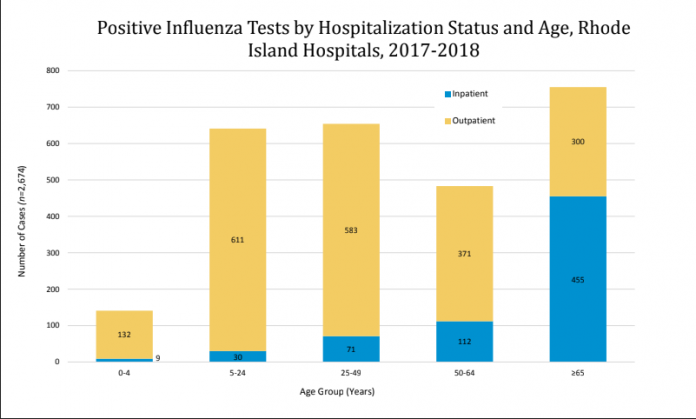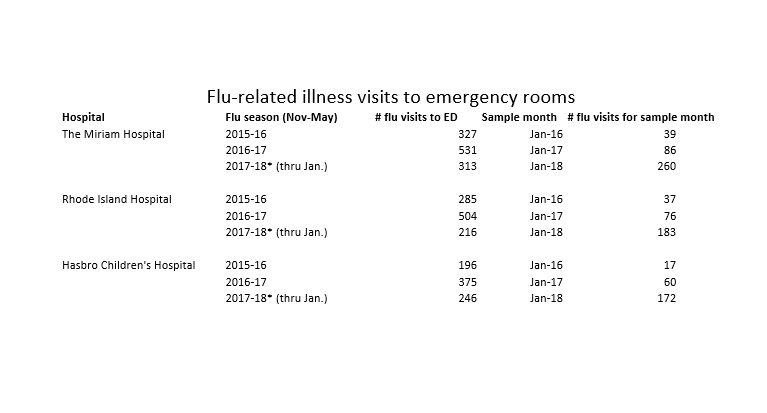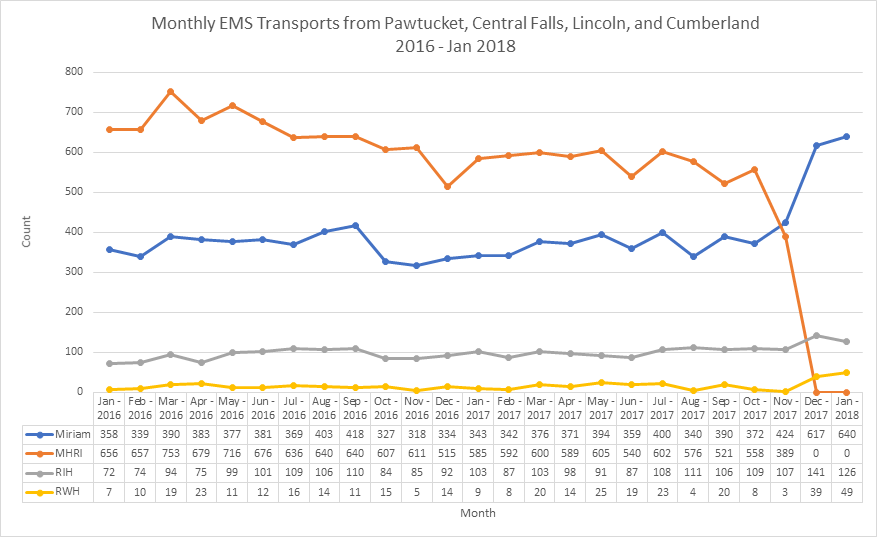
PROVIDENCE — Rhode Island hospitals are handling increased emergency calls during a flu season the Centers for Disease Control and Prevention calls “intense,” rivaling levels of influenza-like illness during the last nine years, advising that vaccinations can still prevent new cases and deaths.
CDC Acting Director Dr. Anne Schuchat said during a Feb. 9 media conference call that while there are concerns about the effectiveness of the current flu vaccine (tailored to protect against H1N1 viruses while the most common flu virus in circulation is the H3N2 virus), some protection is greater than none.
Also, she said, a vaccine that doesn’t stop an infection can still prevent serious complications if someone does become sick, preventing hospitalization and death. Schuchat also recommended routine healthy habits, including staying away from people who are sick, frequently washing your hands, covering your cough and sneeze, and the use of antiviral drugs.
Nationally, the current flu season has produced the same levels of illness as during the 2009 H1N1 pandemic and has outstripped the most recent severe flu season running from 2014-2015, Schuchat said.
Influenza A H3N2 viruses, dominant this season, are often linked to more-severe illness, especially among children and people aged 65 and older.
“However, we are seeing an increasing proportion of B viruses circulating, as well as a smaller increase in the proportion of H1N1 viruses. Last week, B strains made up 30 percent of the tested viruses,” Schuchat said.
So far, the country has experienced 11 weeks of elevated influenza-like illness. Since the last five flu seasons lasted 20 weeks, the current flu season may only be halfway over, she said. Last week, 48 states reported widespread influenza activity. Oregon and Hawaii are reporting regional or less-widespread activity, according to CDC records.
A total of 17,101 laboratory-confirmed influenza-associated hospitalizations were reported in the U.S. between Oct. 1, 2017, and Feb. 3. The overall hospitalization rate was 59.9 per 100,000 population, according to CDC records. One out of 10 people who died in the U.S. the previous week died from influenza or pneumonia, Schuchat said.
In Rhode Island, there were 677 new cases of flu-related illnesses reported Feb. 5-9, for a total of 2,674 flu-related illnesses reported in the state so far this flu season, according to the R.I. Department of Health. There have been 18 flu-related deaths reported in the state so far this year.

The flu season has contributed to a high volume of visits to local emergency departments, particularly during the last month.
At The Miriam Hospital, the number of emergency department flu-related visits was 313 from November 2017 through January. January accounts for 260 of those flu-related cases, according to records provided by Lifespan Corp.
During the 2016-2017 flu season, the number of flu-related emergency room visits at Miriam from November through May was 531, with 86 in January 2017. For the 2015-2016 flu season, the numbers were 327 from November through May and 39 in January 2016.
Of the 216 Rhode Island Hospital emergency department visits for flu-related illness between November 2017 and January 2018, 183 of them were reported in January.
During the 2016-2017 flu season, the number of flu-related emergency room visits at RIH from November through May was 504, with 76 in January 2017. For the 2015-2016 flu season, the RIH numbers were 285 from November through May and 37 in January 2016.
Of the 246 flu-related illnesses treated at Hasbro Children’s Hospital’s emergency department from November 2017 through January 2018, 172 of them were reported in January, according to records at Lifespan.
During the 2016-2017 flu season at Hasbro, the number of flu-related emergency room visits from November through May was 375, with 60 in January 2017. For the 2015-2016 flu season, the numbers were 196 from November through May and 17 in January 2016.
Joseph Wendelken, public information officer at RIDOH, noted the closure of Memorial Hospital on Nov. 11, 2017, has increased the volume of EMS transports overall at area emergency departments.
In November 2016, with Memorial Hospital’s emergency room running, Miriam received 318 emergency transports from Pawtucket, Central Falls, Lincoln and Cumberland, according to RIDOH. In November 2017, the hospital received 424 transports, 106 more than the previous year.
Rhode Island Hospital received 85 emergency transports from the same four communities in November 2016, which increased to 107 transports a year later.
At Roger Williams Hospital, the number of transports from the four communities decreased from five in November 2016 to three in November 2017.
In December 2017, the first full month without Memorial Hospital, Miriam received 617 emergency transports from the four communities, 283 more than it received a year prior; Rhode Island Hospital received 141 transports, 49 more than a year prior; and Roger Williams Hospital received 39 transports, 25 more than a year prior.

Rob Borkowski is a PBN staff writer. Email him at Borkowski@PBN.com.












